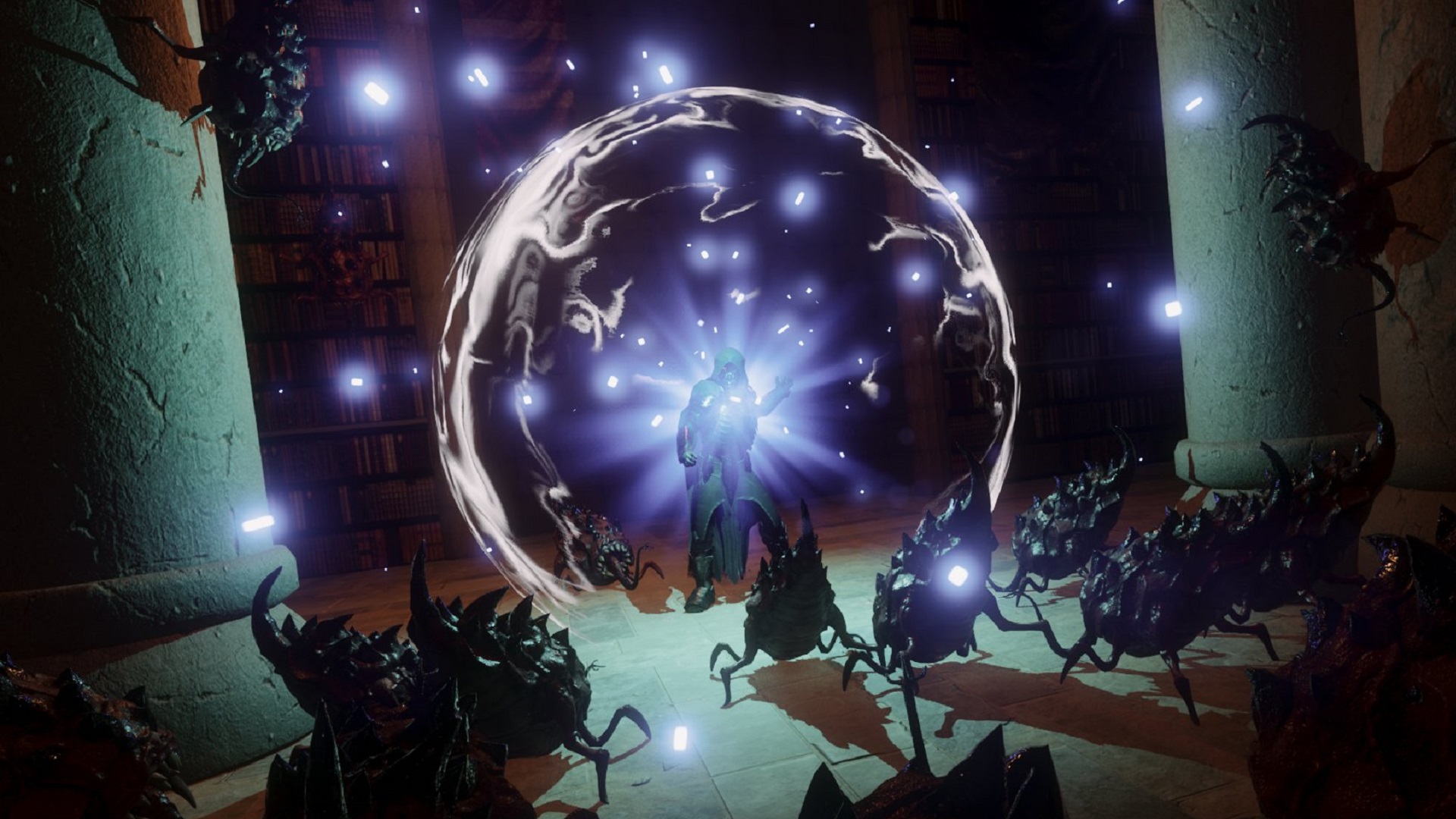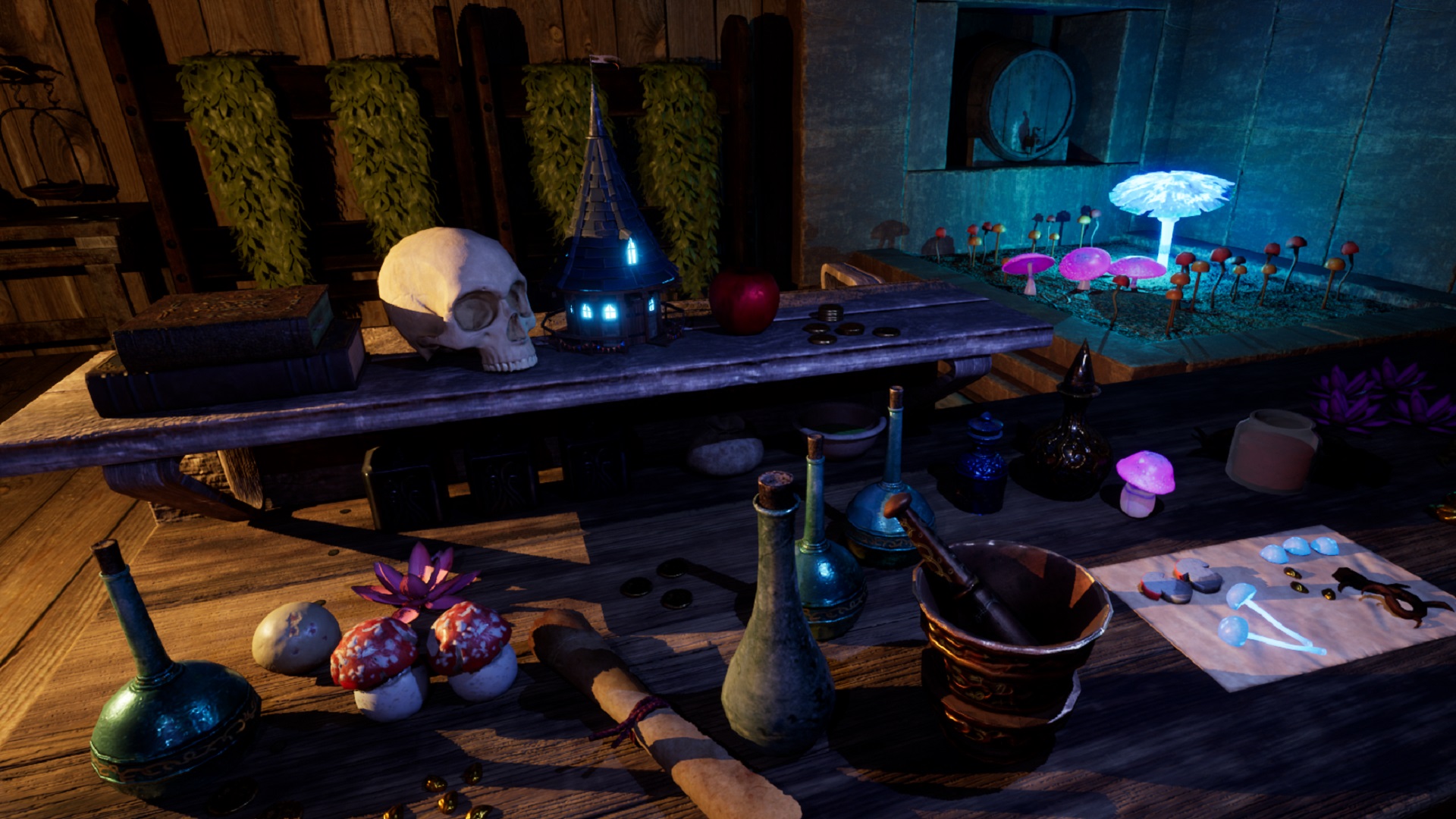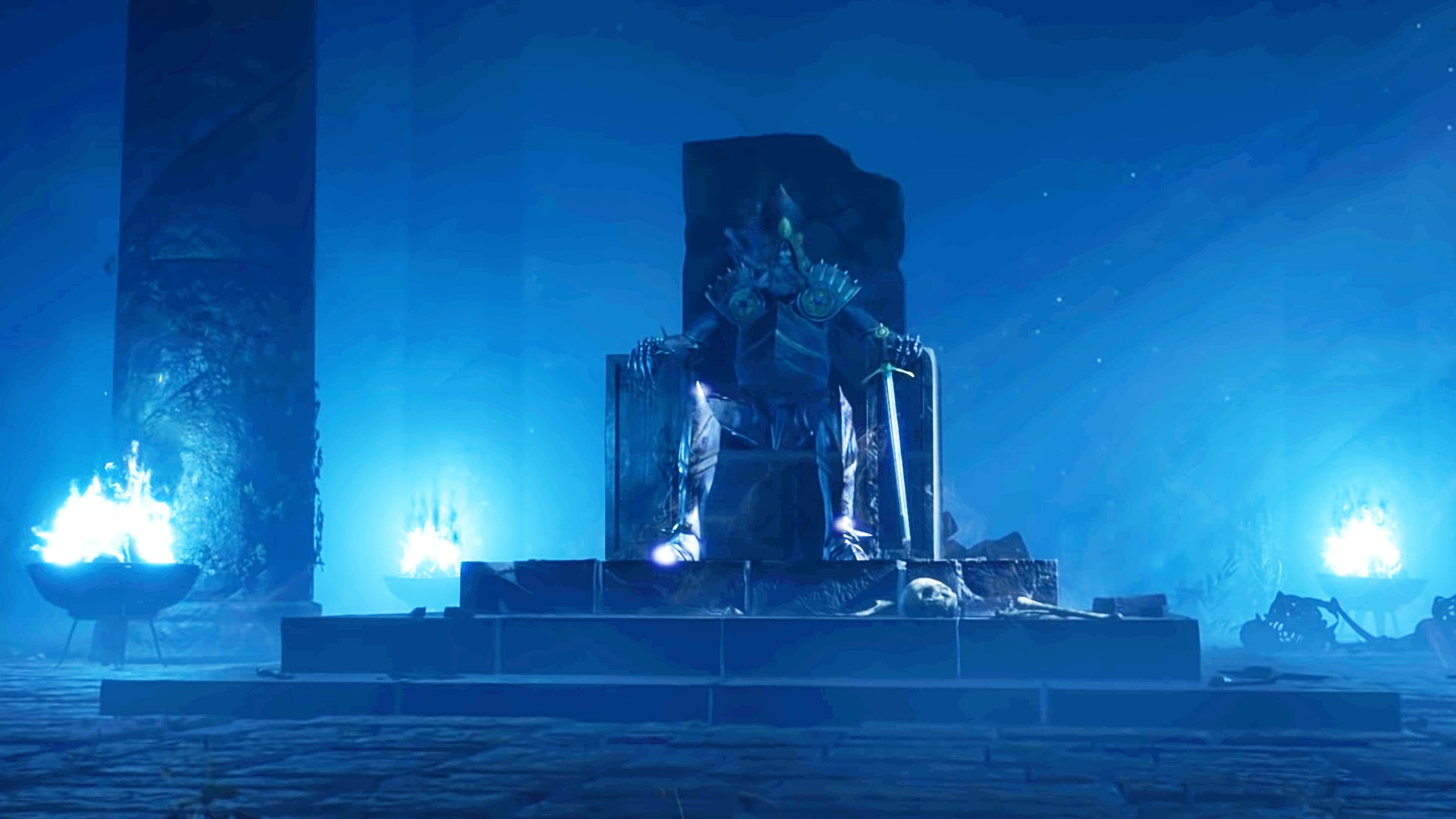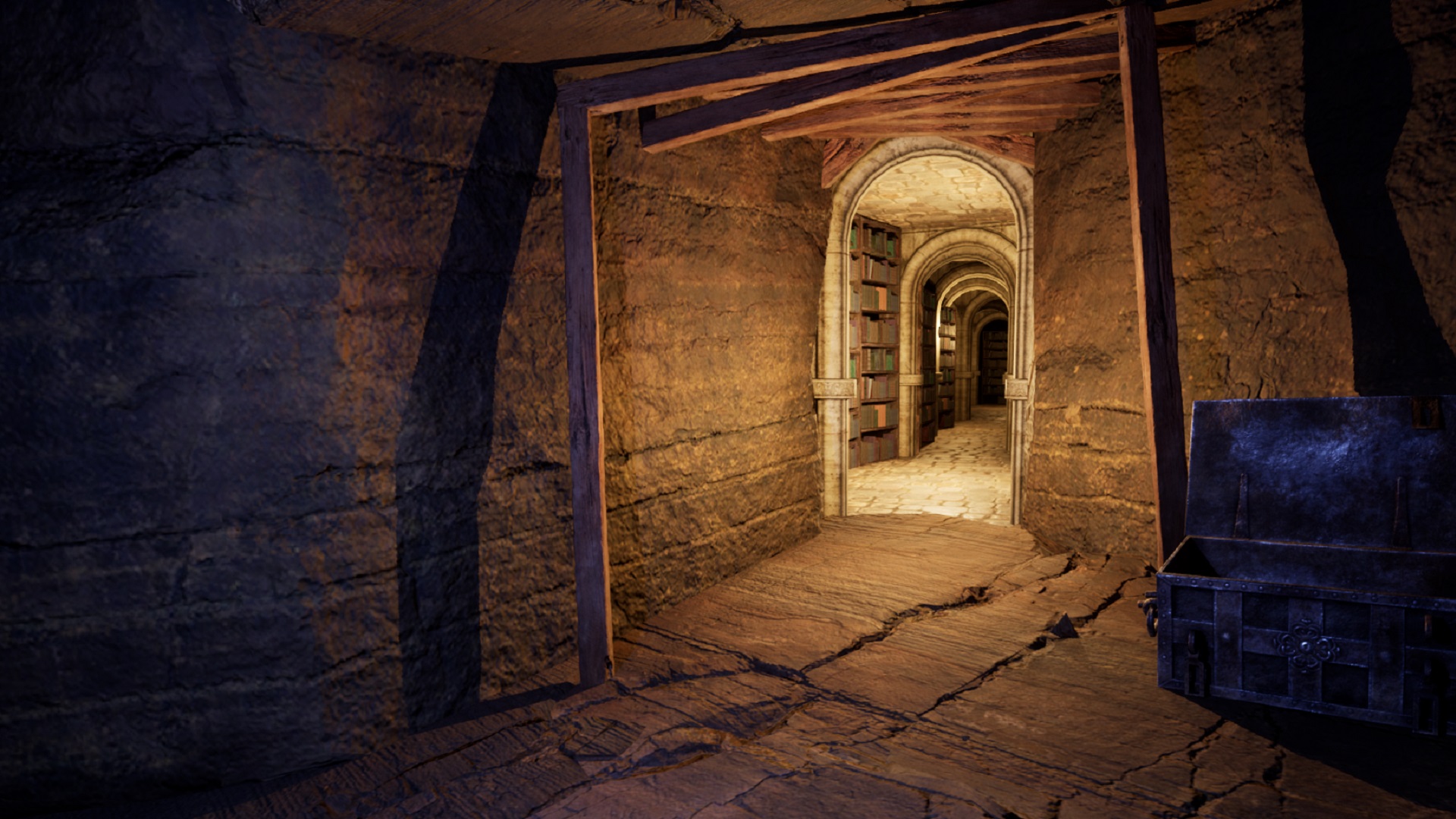Sometimes there’s a videogame project so ambitious that it’s hard to imagine how it could become a reality within today’s industry. Back in 1996, for instance, we’d never have believed that an open-world RPG with multiple continents and thousands of cities was possible, yet Julian Le Fay, Todd Howard, Ted Peterson, and the rest of the Bethesda class of ’95 did just that with The Elder Scrolls II: Daggerfall, expanding our understanding of the genre and all that was possible within it.
26 years on, several Bethesda alumni including Le Fay and Peterson have reunited at OnceLost Games to work on something they hope will once again shake up the RPG discourse.
Their game, The Wayward Realms, will have certain similarities to Daggerfall. Set across a vast archipelago, it too will use procedural generation to create hundreds of cities nestled in diverse environments whose architecture and topographies reflect their place in the world. The map itself will be handcrafted, but much within will be procedural.
One of the valid criticisms of Daggerfall – and procedural generation as a whole – is that it can be soulless, lacking the human touch that shapes the most memorable places in the best RPG games. It’s one thing to procedurally generate some trees to pad out the landscape (even Hidetaka Miyazaki admitted to doing so in the tightly designed Elden Ring), but it’s another thing entirely to outsource buildings, cities, even entire questlines to algorithms.
But Wayward Realms’ Technical Director, Julian Le Fay, says that AI generation can do a whole lot more than it used to.
“You don’t want to just have a bunch of houses, rotate them, change colours and slap them in there. That’s boring,” Le Fay tells me. “Our algorithm will go further. Cities should be shaped by things like climate, the history of the area, war, conflict, disease, commerce, and – very importantly – poverty level.”
The lore of the world, which is very much handwritten, will also affect the algorithm, helping it create cities with culturally and regionally appropriate architecture, peoples, and social circumstances.
Being a fantasy RPG, The Wayward Realms will offer plenty of opportunities for the player to have an impact on the world. But rather than just relying on scripted consequences based on whether you make one dialogue choice or another, there will be something akin to an AI DnD-style dungeon master that reacts to each action that you specifically take.
The idea is that everything you do can be its own algorithmic spanner in the works of the game world’s systems, dynamically crafting bespoke experiences that – should it all come together – we’re yet to really see in the medium. Le Fay wants the world to be unthinkably reactive. “When you’re a GM and you’re building an adventure, there’s a process in your mind,” Le Fay says. “The steps you go through, the things you look up and the way you go about it can all be simulated by a computer. It’s difficult and it takes time, but it’s doable.”
When we talk about how this emergent style of play might manifest in-game, Le Fay demonstrates a sequence of events that starts with one of the great failings of most RPGs: enemy AI. “If there are like 20 enemies and you killed 19 of them and there’s one left, why’s he still fighting when he’s clearly not going to win?” Le Fay muses. “They should have some idea of self-preservation, maybe live to fight another day and learn from the encounters.”
In The Wayward Realms, an orc may flee upon seeing you slaughter its pals, and continue to exist out there in the world. Later in the game, this means you may stumble upon a village that’s being razed by that same orc, now in charge of a warband that’s hellbent on destroying humans. That’s the kind of complexity Le Fay is shooting for. “Systems and procedural generation are not hard, but the trick is to make them do the kind of thing a person would do,” Le Fay tells me. “It has to have meaning, it has to have consequences.”
Le Fay is acutely aware of the blind spots of modern RPGs, which he’s looking to address in The Wayward Realms. There will be no overarching ‘karma’ system in the game, and your reputation will only be affected if people see you steal a shiny trinket or murder some hapless peasant in a backalley.
Le Fay believes that the way news and gossip disseminate should also be systemic. “If somebody’s seen you do something you shouldn’t, what are the odds of that spreading, who hears about it, how long does it take?” Le Fay explains. “That’s another way we break from traditional RPGs. If you do something and fast-travel to a city two weeks away, people won’t immediately know what happened. Information should disperse through the world, given certain conditions as it were.”
And on the note of fast travel, it’s not surprising to hear that Le Fay feels modern RPGs have made things too easy. He reserves some praise for Fallout 4, however, for letting players fast-travel using a Vertibird. “I like that system because it was reasonably fast – you get to see everything while you travel, but you have to use a flare and actually wait a little bit,” he says. “There was a cost to it and a little time cost, but it wasn’t annoying. I’d like to have something like that in The Wayward Realms.”
When I suggest that perhaps players have been a bit spoiled by the conveniences of modern RPGs – as well as popular ‘RPG-lites’ like Assassin’s Creed – to have the patience for immersive fast travel, Le Fay replies casually, “Yeah, screw ’em. The thing is that people don’t always know what they want,” he says. “They say they want it convenient, like ‘I want lots of loot, I want to travel anywhere right away, a button to do this and that’. I’m like, ‘OK, at this point how about a button that just wins the game for you? Would that do it?'”
Le Fay doesn’t want everything in The Wayward Realms to feel like a slog, but also believes that some friction is vital to retaining the sense of scale and time lapsing in the world. It’s a fine balance between appeasement and the kind of disruptive, trailblazing experience Le Fay is helping OnceLost Games craft, “but somewhere between those two things,” Le Fay tells me, “lies the truth.”
 Game Pass for PC Game Pass for PC $9.99 $1 (first month) Subscribe Network N earns commission from qualifying purchases via Microsoft and other programs.
Game Pass for PC Game Pass for PC $9.99 $1 (first month) Subscribe Network N earns commission from qualifying purchases via Microsoft and other programs.
The Wayward Realms is a long way off yet, but it’s a prospect that seems to defy the kind of formulaic systems and current ideas about what procedural generation and a systems-driven world are capable of. Clearly something of such ambition will take time, but in creating a game with a seemingly endless array of possibilities, does a few years really matter?




